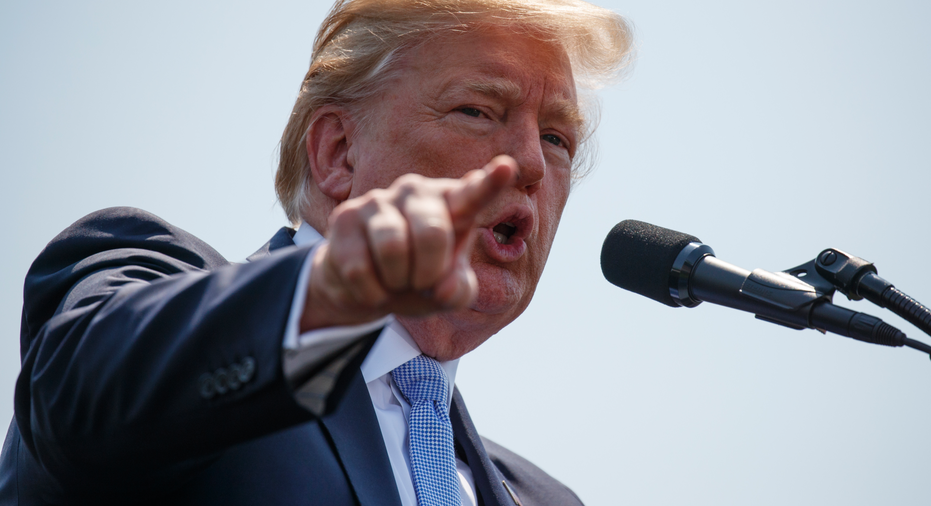Trump Indonesia project gets Chinese government partner

NEW YORK – A Chinese government-owned company has signed on to build a theme park in a vast development in Indonesia that also features a Trump hotel and condos, a deal that stands to benefit President Donald Trump's company just as top Chinese envoys head to Washington for trade talks.
In a move that has alarmed Trump critics, an Indonesian company confirmed this week that it hired the subsidiary of the state-owned Metallurgical Corp. of China to build a theme park in its Lido City development outside Jakarta. The property owner three years earlier struck a deal for the development to include a Trump-branded hotel, 400 luxury villas and condos, and an 18-hole championship golf course.
Even though Trump's involvement in the project predated his election, ethics experts say it's still trouble for the president, possibly putting him in violation of the emoluments clause of the Constitution, which bans gifts from foreign governments.
"This clearly benefits the Trump Organization, and therefore its owner Donald Trump," said Harvard Law professor Laurence Tribe, who is advising on several lawsuits against the president. He added that it is irrelevant if the benefit came "indirectly" from China through the Indonesian company.
MNC Land, the Indonesian company that is developing the park, is owned by billionaire Hary Tanoesoedibjo, who attended Trump's inauguration last year. In a statement, MNC Land said the Trump Organization has "no relationship" with the theme park that the Chinese company is building. It also said that news reports that a Chinese government-backed $500 million loan for the project had been signed were false.
White House officials steered clear of talk of Chinese backing for the project, dismissing the belief that it could violate the emoluments clause or the Trump Organization's pledge to refrain from new foreign business while the president was in office.
Staffers pointed to an answer Monday from White House deputy press secretary Raj Shah, who referred all questions to the president's business. The Trump Organization declined to comment.
The deal also raised questions about possible links between the investment and the president's seemingly out-of-the-blue tweet Sunday in which he called for Chinese telecommunications company ZTE to "get back into business, fast" because "too many jobs in China" had been lost, a call to help that seemed a stark departure from Trump's "America First" foreign policy.
Just last month, the Trump administration ordered a seven-year halt in American shipments of computer microchips and software that are at the heart of most of ZTE's telecommunications gear. The Commerce Department accused ZTE of violating American sanctions by selling to Iran and North Korea. ZTE phones had also been banned from U.S. military bases earlier this year over fears they could pose a security threat.
White House officials denied any connection between the company and the Indonesia project. Instead, they framed the tweet as a call to protect American jobs — many of the ZTE components are made in the United States — and placed it in the context of ongoing negotiations about trade between the two countries certain to accelerate when senior Chinese officials arrive in Washington later this week.
The overture could also reduce tension with Beijing as Trump leans on China for help in the weeks before his summit with North Korea leader Kim Jong Un in Singapore.



















